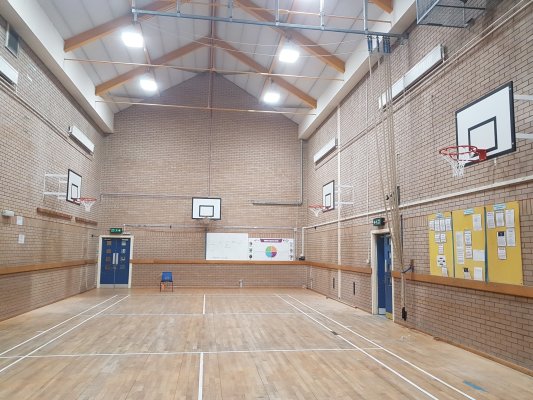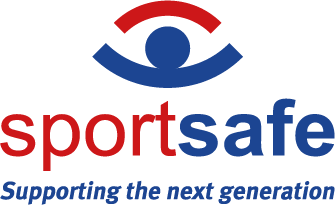No products in the basket.
‘Reading is to the mind as exercise is to the body’
Joseph Addison
It’s a competitive world out there. If you want access to Life’s opportunities, it pays to work hard at school and do as well as you can academically. Paradoxically, however, a nose-to-the-grindstone, paperwork-only, total-exam-focus approach is not necessarily the best route to success.
The secret lies in balance. The balance of body and mind; the nurture of the pupil, student, human as a whole being – not a machine of separate parts to be programmed for final outcomes, but an intricate system of symbiotics working together to become the best we can be.
Studies show that academic study and sporting prowess go hand in hand – they should be complementary partners, not rivals for the students’ time and focus. Schools that find this balance give their pupils and students the best chance of success in any field.
‘The real value of competitive sport is the positive effect it has on education. Schools that win on the field, win in the exam hall.’
Sir Michael Wilshaw, Her Majesty’s Chief Inspector, Gov.UK
Ofsted ‘Going the extra mile – Excellence in competitive school sport’
The positive impact of physical education and access to sport on the well-being, confidence and progress in the classroom has been noted. Schools that have sport central to their ethos and curriculum also tend to report better student behaviour, community spirit and commitment to learning.
‘In independent schools, competitive sport isn’t an optional extra; it’s a key component in building self-esteem, confidence, school ethos and academic excellence. The drive to compete and excel in sport shapes a youngster’s character, binds the school together and reinforces the drive to compete and excel academically…. State schools (that) use competitive sport to energise the entire school culture (have) leaders (that) understand its value and continually promote it. Pride in a team, the thrill of a new challenge, encouraging every pupil to have a go all pay academic dividends. As a result, attainment across these schools tends to be high.’
‘Headteachers and governors in these schools put in place the people, time and facilities needed to maintain the school’s sporting traditions, and use sport to promote its culture of achievement.
Ofsted Gov.UK ‘Going the extra mile – Excellence in competitive school sport’
So, the academic and the sporting are two sides of the same coin in a successful school – but what are the practical demands of balancing sports and academics?
Balancing the pressure on the student
Classroom teachers and sports coaches need to recognise the time demands and expectations that the combination of commitment to academic studies and involvement in sport place on each student. For the dedicated student, trying to do their best in each area, a degree of flexibility in match availability or homework deadlines might be called for – with teachers communicating to understand when the academic or the sporting should take priority. Equally, with the less-dedicated, more manipulative student, the sports coach can support the academic by reducing sport unless classwork meets standards first – and the subject teacher, when satisfied with work ethic, can reward with more sports time allowance. The attainment of balance must also, obviously, fall within the student’s own development of self-discipline – a vital life skill in itself.
Those wanting to play sport sign a written code of conduct agreeing to meet teachers’ high expectations of them. If their behaviour or attendance falls below expectations, they do not play.
Ofsted ‘Going the extra mile – Excellence in competitive school sport’
Other considerations to help students to balance their sporting and academic aspirations include:
- Teachers/coaches who have been through the same circumstances themselves as students; who recognise and support the symbiotic relationship between sport and academic study; who are prepared to be involved in all areas of the curriculum and extra-curriculum.
In the most successful maintained schools and academies, well-qualified coaches are employed, often on a permanent basis, to work alongside teachers in lessons and to coach school teams. Maintained schools and academies that employ sports coaches in this way place emphasis on both maximising participation and achieving high standards of performance. Teachers of academic subjects also dedicated their own time to providing regular fitness training or coaching and running school teams. This enhanced the schools’ capacity to provide sport for children of different abilities and interests.
Ofsted ‘Going the extra mile – Excellence in competitive school sport’
- Access to education online when away for matches and competitions
- Flexible learning options
- Time to plan properly with advice from tutors
- Timetable decompression time
- Early discussions with students about ambitions
Facilities – access and quality
Even schools and colleges with an ethos that intrinsically promotes the combination of sport and study can still find the balance hard to achieve. When designing the layout of new buildings and spaces or contemplating the next budget plans, managers need to consider the best ways to obtain this balance in practical terms.
Quick transition access and times from sports facility to classroom can make a world of difference in student focus, minimising lesson disruption and inclusivity. Having good onsite sports facilities is often also a major ‘selling point’ when students (and parents) are in a position to choose a school. Questions in mind might include:
- What type of facilities does the educational institution have access to?
- Are the facilities that are provided “fit for purpose” with regard to your training needs and located close to the educational institution?
- Do the transport options available make it possible, in a reasonable time, to access these facilities?
- Does the educational institution have access to the required expertise in terms of coaching and support services (for example biomechanics, nutrition, sports psychology, physiotherapy, etc.) if you are to be based there?
- Does the educational institution have demonstrated links with other national or international sporting authorities from which to draw expertise and advice?
- Is access available for personal coaches to use the venues and facilities?

Some educational establishments take this to the highest level possible, with outstanding balance between the academic and all sporting abilities.
‘Loughborough is a unique, elite-level sports environment catering to the needs of multiple sports and National Governing Bodies.
We have hosted multiple elite-level training camps and competitions where teams have benefited from our:
- Secure single-site campus environment
- World-class sports facilities
- Two world-leading gyms
- Performance support services used by Olympic and Paralympic athletes
- Three on-campus hotel solutions, including the Elite Athlete Centre with altitude bedrooms
- An inspiring and vibrant elite athlete environment
- Training camps. We have hosted multiple teams on campus.
- We have recently hosted national athletics, tennis, and netball events.
- Altitude and heat training. Our Elite Athlete Centre and Hotel, centrally located on campus, has 20 altitude bedrooms.
- This programme is specifically designed to build effective and efficient players and athletes, we will teach you the techniques necessary to maximise explosive strength, speed and robustness.
Unfortunately, not every establishment has the opportunities to reach these heady heights of provision – but every establishment can do the best it can with what it has. It is all in the mindset and commitment of both the staff and the students.
For those on a lesser budget and more restricted facilities access, it could be worth considering opening the facilities to the local community. This not only brings in much needed revenue but it greatly enhances the concept of sport being part of a successful, holistic academic education. School facilities are also of immediate interest to sports teams as it is so difficult to find the range of facilities on any other single site.
‘Schools have to cater for a wide range of physical activity for their students, including numerous extra curricular sports. Most therefore have the equipment and spaces needed for most popular sports already on-site. From AstroTurf floodlit football pitches to all-weather basketball and tennis courts, there are very few other types of venues that can accommodate such a variety of sports on one site.
Players and teams need to practise on a pitch or court that is as close in size to the real thing as possible, to get the most out of their training. Most schools usually have large grounds so, whatever the size of the team, there is plenty of space. Every sports team or individual athlete will have the freedom to practise every move on a full-size court, pitch or track appropriate for their sport of choice.
Summer is the off-season for many sports, meaning it is the perfect time to concentrate on team training sessions. It is also holiday time for schools, so facilities are available all day, every day, for several weeks. Boarding schools are great venues for team summer camps as they offer on-site accommodation and catering, reducing travel time for teams.’
Cheltenham Ladies College has a sports centre available for hire that rivals the best in the country. One of the exceptional facilities here is the state-of-the-art 25m pool. With its elegant wooden barrel roof and floor to ceiling glass walls, this is a pool to inspire future champions. Thanks to its ozone cleansing system, no swimmer need smell of chlorine or suffer stinging eyes ever again! Swimming teams can also work on their physical fitness in one of two gyms, or in the weights room.
With this in mind, it is worth looking at how provision around the sports facilities could also be put to good use for the benefit of the school in financial terms whilst further enhancing the balance between the classroom curriculum and sporting achievements. Changing facilities and catering options fall within many schools’ improvement capabilities.
‘Training is hard work, so it’s unsurprising that after training, players will want to hit the showers as soon as possible. All schools, particularly those with a focus on sport, will have clean, changing rooms with showers and in some cases, extras such as steam rooms. With on-site facilities, players and athletes can start their cool down process almost as soon as they step off the pitch, making the training experience more effective in preventing muscle damage and strain.
It’s the extras a venue can offer to individuals or sports teams that can make training more efficient and effective. For long training sessions, players will need to stop for breaks and food. Having catering facilities on-site is far more preferable than having to transport the whole team to an alternative venue just for meals.’
‘We found evidence of an overall positive association between the quality of provision of competitive sport and academic attainment, and the overall school effectiveness judgement in the schools we visited.
‘Our academic success is largely due to sport, the students love it. It has helped to improve their behaviour and attitudes and their attendance has risen because sport gets them into school.’Headteacher, Eastbury Comprehensive School Gov.UK ‘Going the extra mile – Excellence in competitive school sport’
In conclusion, contrary to first appearances, sport and academic studies are hand and glove for overall student experience and achievement of potential. The key to success, however, lies in finding an equilibrium that supports both – and enables each to support the other.

